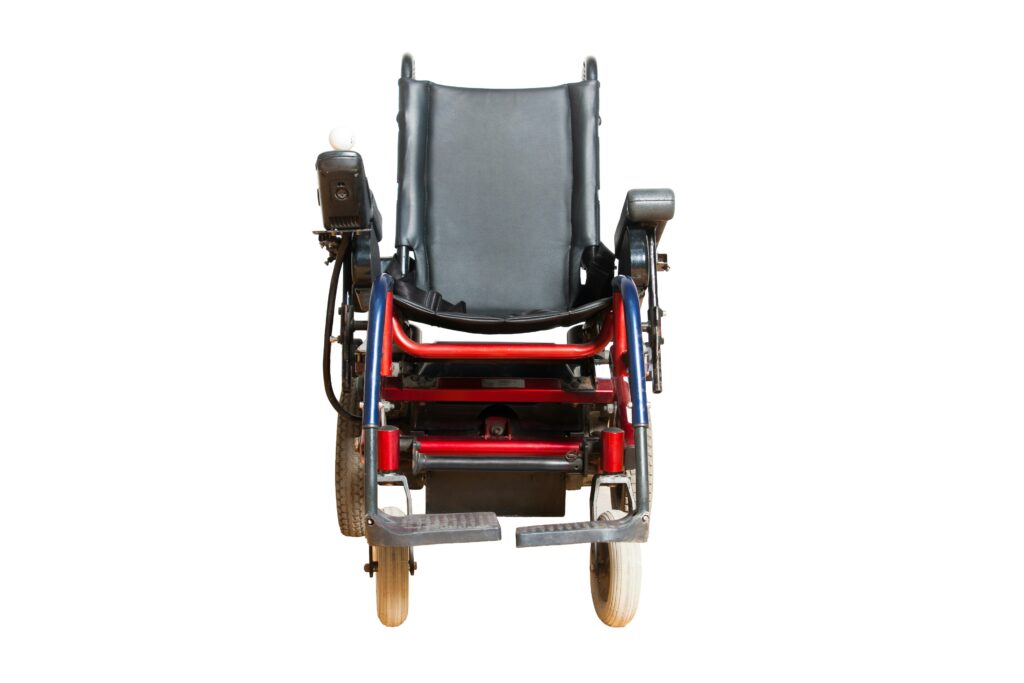Are you worried that your forgetfulness may be a sign of something more serious, like mild cognitive impairment? In this article, we will explore the link between forgetfulness and mild cognitive impairment and provide you with a better understanding of this connection. Instead of offering general background information, we’ll focus on giving you in-depth coverage of the topic, shedding light on whether forgetfulness can indeed be a symptom of mild cognitive impairment. So if you’ve been grappling with memory lapses and wondering what they may mean, keep reading to gain valuable insights and put your mind at ease.

Understanding Forgetfulness
Defining Forgetfulness
Forgetfulness refers to the inability to remember or recall information, events, or experiences. It is a common occurrence that can happen to anyone at any age. Sometimes forgetfulness can be a normal part of aging, while in other cases, it may be a sign of a more serious condition, such as mild cognitive impairment (MCI) or dementia.
Normal Forgetfulness Vs. Pathological Forgetfulness
Normal forgetfulness is a common experience where you may forget where you placed your keys or have difficulty recalling a person’s name momentarily. It is usually temporary and does not significantly impact daily life. On the other hand, pathological forgetfulness, such as that found in MCI or dementia, involves more persistent and progressive memory loss that affects daily functioning.
Signs and Symptoms of Forgetfulness
Forgetfulness can manifest in various ways, including:
- Difficulty remembering recent events or conversations.
- Struggling to recall familiar names or faces.
- Misplacing items or regularly forgetting where you put things.
- Forgetting appointments or important dates.
- Difficulty learning new information or concepts.
- Repeating questions or stories within a short period of time.
It’s important to note that occasional forgetfulness is generally not a cause for concern, but if you or a loved one experience persistent or worsening memory loss, it may be worth seeking medical evaluation to determine the underlying cause.
Defining Mild Cognitive Impairment
Meaning of Mild Cognitive Impairment
Mild Cognitive Impairment (MCI) is a condition characterized by cognitive decline that is more noticeable than typical age-related changes in memory and thinking abilities. Individuals with MCI may experience difficulties with memory, language, attention, or executive functions, but these impairments do not significantly interfere with daily activities or independence.
Identifying Mild Cognitive Impairment
MCI is diagnosed through a comprehensive evaluation that involves assessing cognitive function, including memory, language, attention, and problem-solving skills. Medical professionals may use standardized tests, questionnaires, and interviews to gather information about an individual’s cognitive abilities and to determine any impairments that may be present.
Symptoms of Mild Cognitive Impairment
The symptoms of MCI can vary from person to person, but some common signs include:
- Memory lapses that are noticeable to oneself or others.
- Difficulty finding the right words or expressing thoughts.
- Decreased ability to solve problems or make decisions.
- Challenges in multitasking or organizing daily activities.
- Increased forgetfulness that interferes with daily routines.
It’s important to understand that MCI does not always progress to dementia, and some individuals may remain stable or even revert to normal cognitive function over time.
Stages of Cognitive Impairment
The Spectrum of Cognitive Impairment
Cognitive impairment exists on a spectrum, ranging from normal age-related forgetfulness to severe dementia. At one end of the spectrum, normal age-related forgetfulness is considered a typical part of the aging process. In the middle, MCI falls as a transitional stage between normal aging and dementia. At the far end of the spectrum, dementia involves significant cognitive decline that affects daily functioning.
Differentiating Between Mild Cognitive Impairment and Dementia
While MCI and dementia share some similarities, they are distinct conditions. MCI is characterized by mild cognitive decline that does not significantly impair daily functioning. Dementia, on the other hand, involves more significant cognitive impairment that affects multiple cognitive domains and leads to a loss of independence in daily activities.
Is Forgetfulness a Symptom of Mild Cognitive Impairment?
Forgetfulness as an Early Symptom
Forgetfulness can be an early symptom of MCI. Individuals with MCI may experience memory lapses that are more pronounced than typical age-related forgetfulness. These memory difficulties may involve forgetting recent conversations or events, misplacing items, or struggling to recall familiar information.
Assessing Forgetfulness in Relation to Mild Cognitive Impairments
To assess forgetfulness in the context of MCI, healthcare professionals may use standardized memory tests, questionnaires, and interviews. These assessments aim to evaluate the severity and impact of memory loss and determine if it is consistent with the criteria for MCI.

Assessing Cognitive Function and Memory
Standard Tests for Memory Recall
There are several standardized tests used to assess memory recall, such as the Mini-Mental State Examination (MMSE) and the Montreal Cognitive Assessment (MoCA). These tests measure various cognitive domains, including memory, attention, language, and visuospatial skills. During the assessment, individuals are given tasks or asked questions to evaluate their ability to recall information.
Interpreting Test Results
Interpreting test results requires the expertise of healthcare professionals. They will compare an individual’s performance to established norms and evaluate the severity and pattern of cognitive impairment. Test results, along with clinical evaluations and medical history, help diagnose the presence and stage of cognitive impairment.
The Mechanics of Memory and Forgetfulness
How Memory Works
Memory is a complex process involving encoding, storage, and retrieval of information. Encoding involves acquiring and processing new information, storage refers to the retention of that information over time, and retrieval is the ability to access stored information when needed. Different regions of the brain, such as the hippocampus and cerebral cortex, play vital roles in memory formation and retrieval.
Why We Forget: Scientific Explanations
Forgetting can occur due to various reasons, including normal aging, distractions, stress, or lack of attention during encoding. Scientific explanations for forgetfulness include interference theory, decay theory, and retrieval failure. Interference theory suggests that new or old memories may interfere with each other, making it harder to recall specific information. Decay theory suggests that memories fade over time if they are not reinforced. Retrieval failure occurs when there are difficulties in accessing stored information.

Risk Factors for Mild Cognitive Impairment
Age Factor in Mild Cognitive Impairment
Age is a significant risk factor for the development of MCI. As individuals grow older, the risk of experiencing cognitive decline increases. However, it is important to note that not everyone who experiences age-related cognitive changes will develop MCI or progress to dementia.
Genetic Factors and Their Role
Genetic factors also contribute to the risk of developing MCI. Certain genes, such as the APOE ε4 allele, have been associated with an increased likelihood of developing MCI and progressing to dementia. However, genetics alone do not determine whether an individual will develop MCI or dementia; other factors, such as lifestyle and environmental factors, also play a role.
Lifestyle Factors
Various lifestyle factors can influence the risk of developing MCI. These include:
- Physical activity: Regular exercise has been shown to have a positive impact on cognitive function and may reduce the risk of MCI.
- Diet: A healthy diet rich in fruits, vegetables, whole grains, and lean proteins may support brain health and reduce the risk of cognitive decline.
- Mental stimulation: Engaging in mentally stimulating activities, such as reading, puzzles, and learning new skills, may help preserve cognitive function.
- Social engagement: Maintaining social connections and participating in social activities can help maintain cognitive health and reduce the risk of cognitive decline.
The Connection Between Forgetfulness and Mild Cognitive Impairment
Neurological Correlation
Forgetfulness is often associated with MCI due to the underlying neurological changes that occur. The brain regions involved in memory and cognitive function may be impacted by MCI, leading to difficulties in memory recall and cognitive tasks. These changes can affect both short-term and long-term memory and contribute to the forgetfulness commonly observed in individuals with MCI.
Understanding the Cognitive Decline Over Time
MCI is considered a transitional stage between normal aging and dementia. While not everyone with MCI develops dementia, there is an increased risk of progression. Over time, cognitive decline may worsen, and individuals may experience greater difficulties with memory, thinking, and daily activities. Regular monitoring and evaluation by healthcare professionals are crucial to track the progression and manage any potential changes effectively.

Management and Treatment of Mild Cognitive Impairment
Medical Interventions
Currently, there is no specific medication approved for the treatment of MCI. However, healthcare professionals may recommend medications to manage underlying conditions that contribute to cognitive decline, such as hypertension or diabetes. Additionally, individuals with MCI may benefit from regular monitoring, cognitive rehabilitation, and potential participation in clinical trials investigating new treatments.
Non-medical Interventions: Diet, Exercise, and Cognitive Training
Non-medical interventions play a significant role in managing MCI. A healthy lifestyle that includes regular physical exercise, a well-balanced diet, mental stimulation, and social engagement can help support cognitive function and potentially slow down cognitive decline. Cognitive training exercises, such as memory exercises and problem-solving activities, may also contribute to maintaining cognitive abilities.
The Social and Emotional Impact of Forgetfulness and Mild Cognitive Impairment
Impact on the Individual
Forgetfulness and MCI can have a significant impact on the individual’s emotional well-being. They may experience frustration, anxiety, or depression due to the challenges associated with memory loss and cognitive decline. It is important for individuals with MCI to seek support and engage in coping strategies to enhance their emotional resilience and quality of life.
Impact on Family and Caregiver
The impact of forgetfulness and MCI extends beyond the individual, affecting their family members and caregivers. Family members may need to provide support and assistance with daily activities, communicate effectively, and navigate potential changes in their roles and responsibilities. It is essential for family members to seek information, resources, and support to cope with the challenges associated with MCI caregiving.
Coping Strategies for Patients and Caregivers
Both patients and caregivers can benefit from coping strategies that promote emotional well-being and help manage the challenges of MCI. These strategies may include:
- Joining support groups: Connecting with others who are going through similar experiences can provide valuable emotional support and practical advice.
- Seeking counseling or therapy: Therapy can provide a safe space to explore and manage the emotional impact of MCI on both the individual and their caregivers.
- Learning new strategies: Techniques such as using memory aids, establishing routines, and practicing mindfulness can help individuals with MCI and their caregivers navigate daily challenges more effectively.
In conclusion, forgetfulness can be a symptom of mild cognitive impairment, which involves cognitive decline greater than normal age-related changes. While forgetfulness in isolation is often benign, persistent and worsening memory loss should be evaluated by healthcare professionals. Managing MCI involves a comprehensive approach that includes medical interventions, non-medical interventions, and support for the individual and their caregivers. Through understanding, support, and appropriate interventions, individuals with MCI can enhance their quality of life and maintain their independence for as long as possible.

